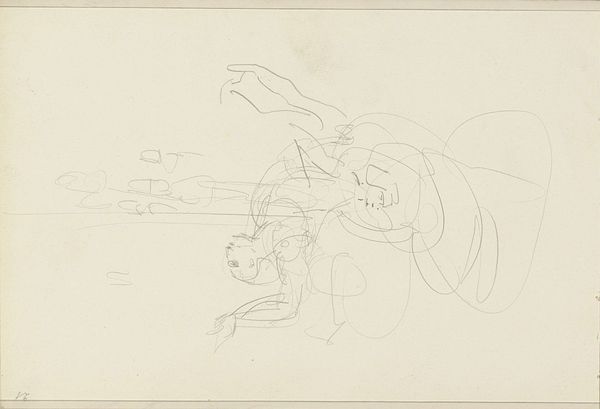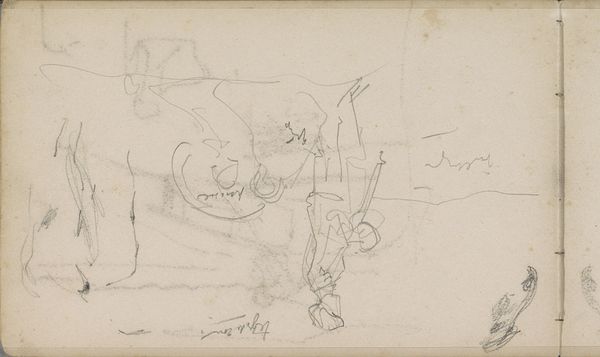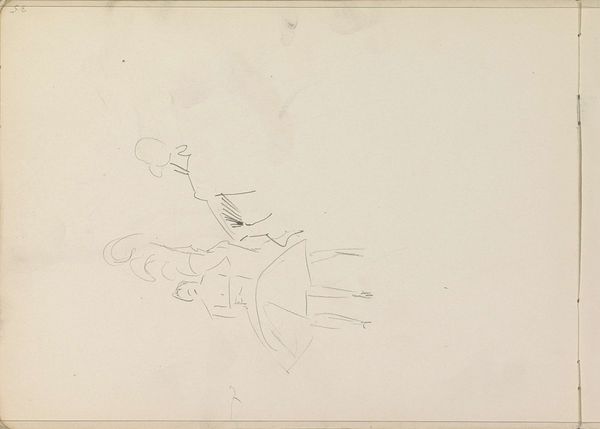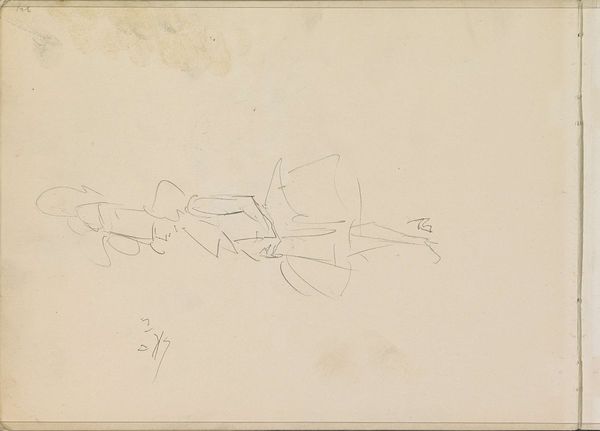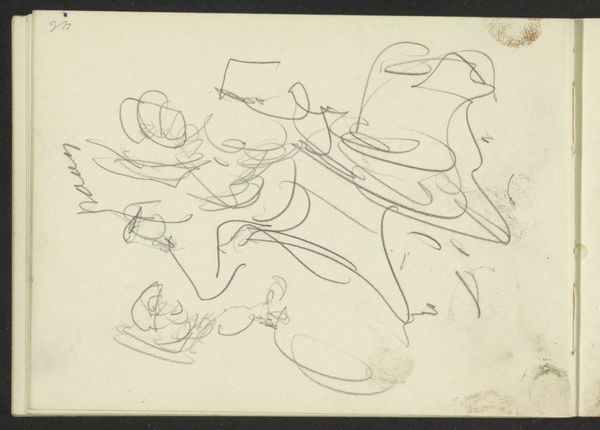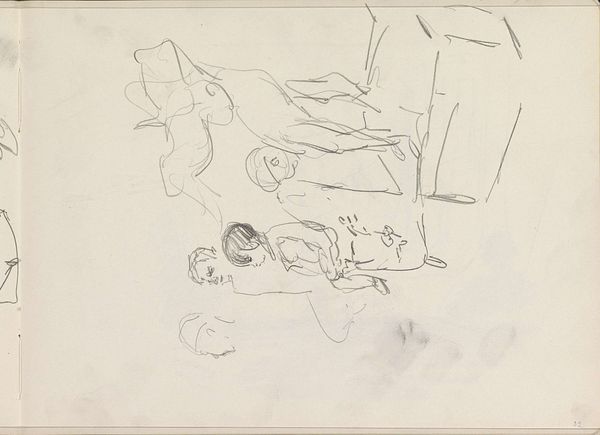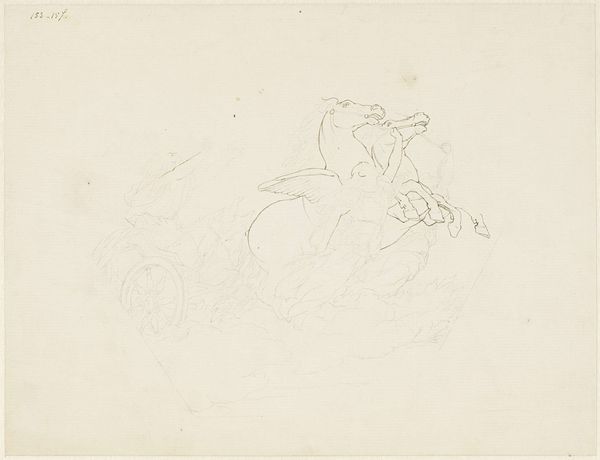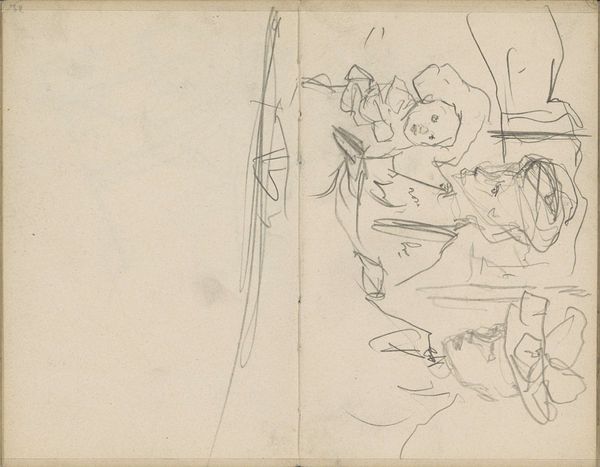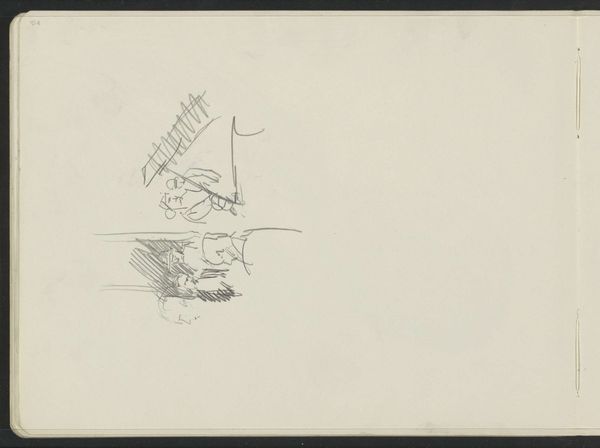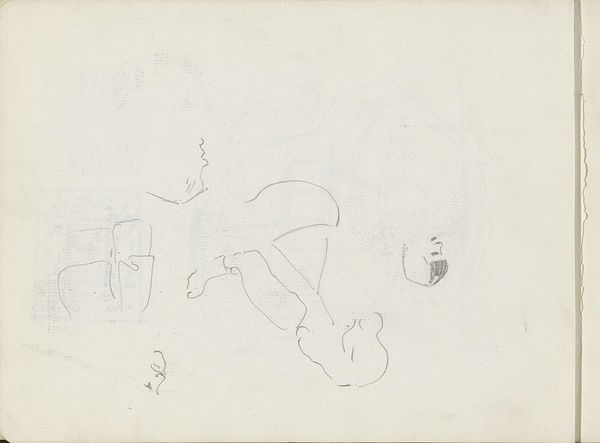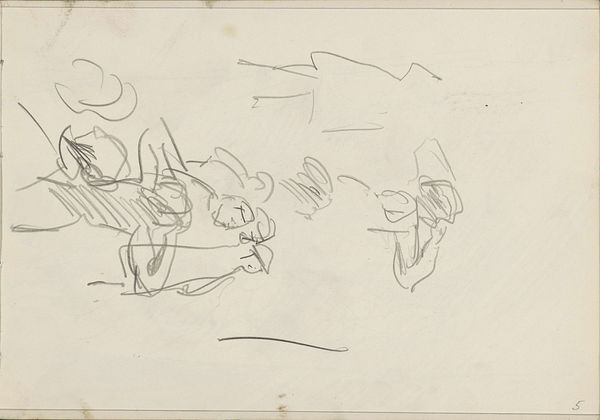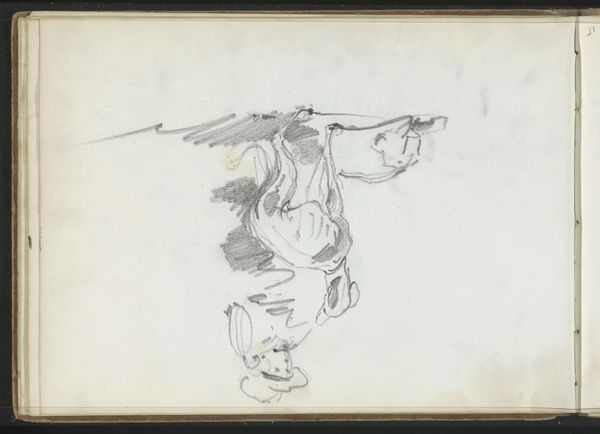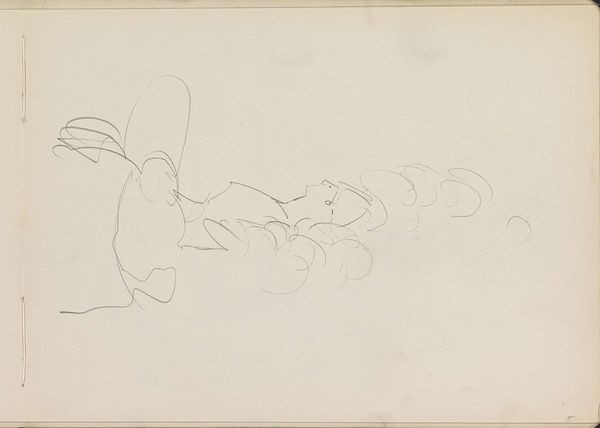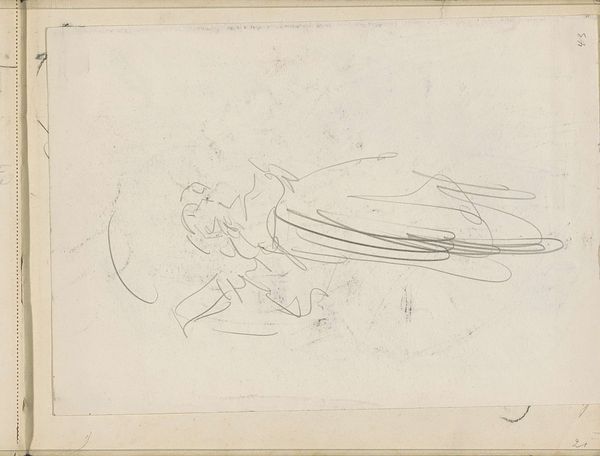
Copyright: Rijks Museum: Open Domain
Curator: Looking at this pencil drawing from sometime between 1915 and 1925... it’s entitled "Dancer, Possibly Before a Mirror," by Isaac Israels, currently held at the Rijksmuseum. A lovely intimate sketch. Editor: My first thought is lightness. It almost seems to float, barely tethered to the paper. Is it me, or is there a touch of melancholy to it as well? Like a fleeting moment captured on paper. Curator: Well, Israels was working in a late Impressionistic style with touches of Intimism. It’s an attempt to capture movement and interiority simultaneously, really indicative of his exploration of the feminine experience in public and private spheres. The loose linework conveys a sense of immediacy, doesn't it? It almost looks as though we caught her in mid-pirouette. Editor: Precisely! The sketchy quality is key, allowing us to fill in the gaps. The reflected figure adds another layer of intrigue, almost like a ghostly double. Was he perhaps commenting on the performative nature of identity? Curator: It's quite possible. Artists like Israels were fascinated by the artificiality and construction of identity, especially as it related to women navigating the modern world. These drawings offered a peek into the changing societal roles they inhabited and sometimes resisted. Museums like the Rijksmuseum, in acquiring and displaying such intimate sketches, subtly shift our perceptions of how "official" historical narratives get crafted. Editor: Exactly. These aren't grand history paintings meant for political projection. Instead, we have the quiet, private moment that’s usually omitted from dominant histories, offering space for nuanced interpretation. There is power in small gestures, as highlighted by the dancer’s almost defiant grace and intimacy with self. Curator: So true. Israels captures not just a dancer, but a whisper of self-awareness and transient beauty, which prompts us to ponder on our reflections and ephemeral selves, too. Editor: Leaving you pondering your next reflection.
Comments
No comments
Be the first to comment and join the conversation on the ultimate creative platform.
